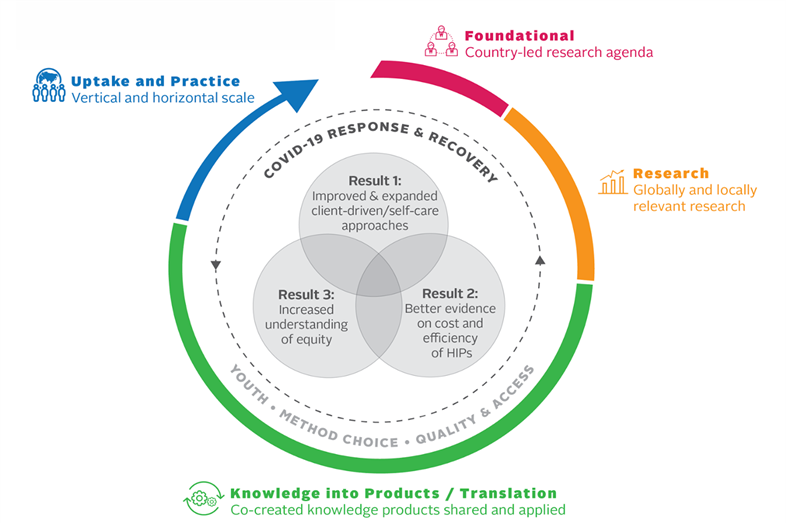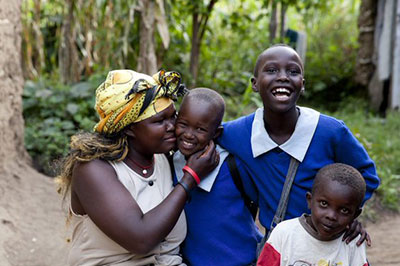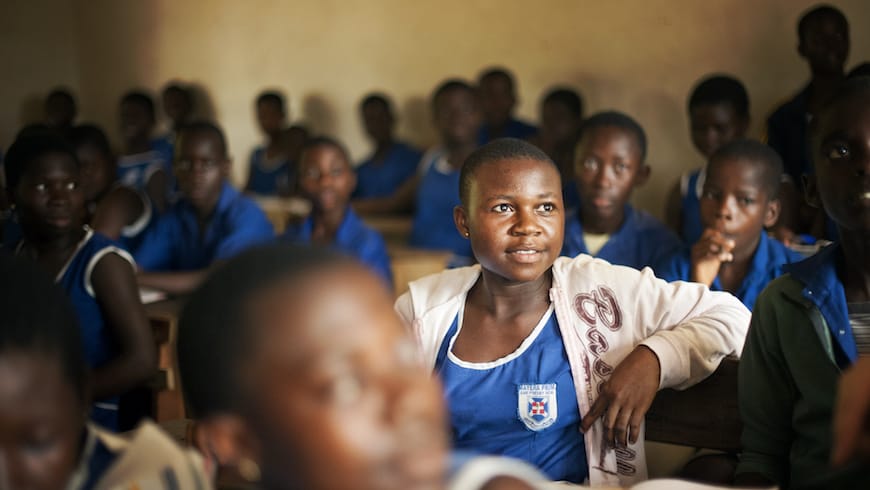Research for Scalable Solutions (R4S)
Despite recent progress, nearly 215 million women in developing countries have unmet need for family planning. In many of these settings, health planners are challenged by suboptimal generation and use of data and limited financial resources. Decision-makers require evidence to inform local adaptations of known effective family planning interventions to better meet the needs of women, men, and youth.
Research for Scalable Solutions (R4S) was a five-year implementation science project funded by USAID (U.S. Agency for International Development. Led by FHI 360 (prime), in partnership with EVIHDAF, Makerere University School of Public Health in Uganda (MakSPH), Population Services International (PSI), and Save the Children, the project aimed at conducting implementation science research to improve the efficiency, cost effectiveness, and equity of family planning programs. The project also generated evidence for improving country-level family planning policies in Africa and Asia.
R4S partners worked together with a range of country research organizations to strengthen research capacity and support countries in their journey to self-reliance.
The CORE activities of our Research for Scalable Solutions (R4S) project ended in September 2024. Its buy-in cross-sectional study on assessing RMNCH/FP service use and barriers to uptake among women and children in Niger is ongoing.
Objective
R4S is an applied scientific research initiative which aimed at enhancing public health programs, specifically in family planning, reproductive health, and global development. The project focused on assessing and adapting effective solutions to increase their accessibility and scalability across diverse contexts.
Approach
R4S Results areas were:
- Expanded development, adoption and implementation at scale of client-driven approaches
- Improved understanding of the cost-effectiveness and efficiency of scaling proven and promising service delivery practices
- Increased understanding of how proven and promising practices enhance equitable access to high-quality, voluntary family planning.
- Voluntary FP Use and Method Choice During the COVID-19 Pandemic. The fourth result area was added about halfway through year 1 after the onset of COVID-19.
R4S – CORE
R4S partners conducted implementation science research aimed at improving the effectiveness and equity of family planning programs across Africa and Asia, specifically in Côte d’Ivoire, India, Kenya, Malawi, Mozambique, Nepal, Niger, Nigeria, Rwanda, Uganda, and Zimbabwe. In West and Central Africa, EVIHDAF conducted studies on:

Snapshot
Study areas: Côte d’Ivoire, India, Kenya, Malawi, Mozambique, Nepal, Niger, Nigeria, Rwanda, Uganda, Zimbabwe
Duration: 2019 – 2024
R4S Partners: FHI 360; EVIHDAF; Makerere University; PSI; Save the Children
Funder: USAID
Others Ongoing Projects
Projects Activities
Coming Soon ….

researchfor

